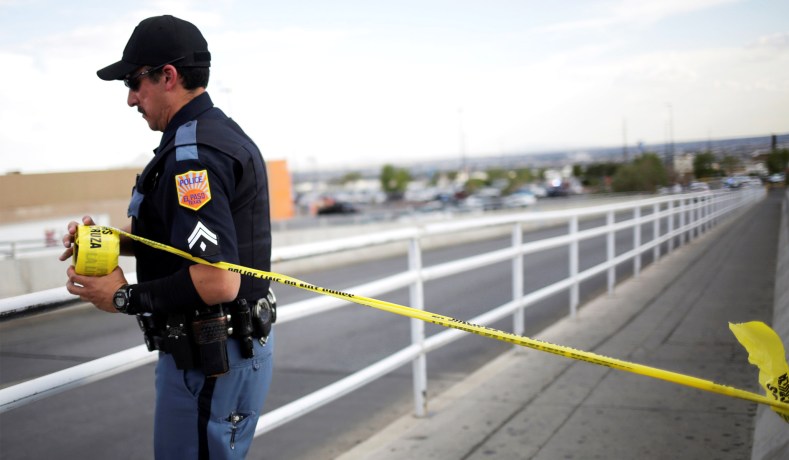
A homeless man named Peter Rocha is in San Francisco police custody after allegedly beating 94-year-old Leo Hainzl to death with a stick.
Hainzl, a refugee who fled Nazi-era persecution in Austria, was walking his dog near Glen Canyon Park when Rocha allegedly carried out the assault and killed the elderly man.
City supervisor Rafael Mandelman told a San Francisco news affiliate that Rocha “was clearly an unwell individual” who was previously the subject of several complaints:
We’ve been hearing from neighbors, he’s been out on the street threatening folks. They have called the police many, many times. Older folks felt very threatened in particular — older folks, kids — he had been a challenge in the neighborhood for some time, and the police had been out to talk to him, and, of course, offered him services on many occasions, and people knew he was suffering from mental illness. He was not taking his medication, but the police were not able to get him services, and nobody else was either.
Some advocates will say that this tragedy represents a failure to adequately fund “community mental-health programs,” but this sort of outcome is the natural conclusion of their aversion to involuntary commitment. Rocha was not, to our knowledge, denied “community-based services” due to a “lack of funding,” or turned away from “counseling” for his obvious mental illness. He instead refused treatment when offered by the police, and perhaps Rocha was unaware that he was sick at all.
Once he refused treatment, local authorities were effectively left without recourse to inpatient commitment, and Rocha was allowed to deteriorate to the point of violence.
Nearly 75 percent of California’s public psychiatric beds are filled by forensic patients, who have committed a crime and have been adjudicated not responsible by reason of insanity or mental defect. The state has neither the inpatient capacity nor the political will to involuntarily commit the seriously ill to state hospitals, and their revealed preference is to wait for the commission of a crime before taking such action. That preference can prove fatal, as it did for Leo Hainzl and countless others like him.


